- Home
- James Hadley Chase
More Deadly Than the Male Page 6
More Deadly Than the Male Read online
Page 6
“So that’s what you think?” George said furiously. “Well, it was your fault. I didn’t want to go. I told you. If I had known what you were up to, it would have been different.”
“How different?” Brant asked. “I’ve got the money and I’ve kicked him out of our territory. We’re free to do what we like now. What more could you have done?”
George was a little taken aback, but he was so envious and angry that he blurted out, “It would have been different if I’d brought my gun.”
“Gun?” Brant repeated. “What gun?”
George had never told anyone about the Luger. It was not the kind of thing you did tell anyone about. He had no licence for it. If the police heard about it, there would be trouble. They would most likely take it from him.
But he told Brant. There was nothing else he could do. It was either that, or loss of face.
“What do you think” he said gruffly. “I’ve had a gun for years. Brought it back from the States; only it’s not a thing I talk about. The police don’t stand for that kind of thing.”
“A gun,” Brant said, making it sound tremendously important. “So you’ve got a gun?”
“Had it for years,” George repeated, uneasy, yet pleased with the impression he had made. “It saves a lot of talking. I’m not much of a one to talk. I don’t need to talk with a gun.”
“I didn’t know,” Brant said, and his hardness and confidence somehow didn’t seem to matter any more to George.
“I don’t mess around with razors,” George went on, his voice sounding strange even to him. “That’s small-time stuff.”
“You can’t get guns here,” Brant said mildly, almost apologetically. “But we scared the rat, didn’t we?”
“We scared him all right,” George returned, losing his ill- temper now that Brant was acknowledging his share in Robinson’s defeat. “I’ll never forget his face when you produced that sticker,” he went on, feeling a generosity that compelled him to give the lion’s share of the exploit to Brant.
“Pity you didn’t bring the gun,” Brant said, equally generous. “He’d’ve had a heart attack.”
George sniggered. Brant, he decided, wasn’t such a had sort after all. “I’ll fix him if he tries anything funny,” he went on grandly. “What with my gun and your sticker, we’ve got him where we want him.”
“You’re a pretty good shot, I Suppose?” Brant said, his head down and his yellow hair plastered flat by the rain.
“Me?” George laughed, delighted with Brant’s interest. “I was considered to be fair enough. I could split a playing- card edge on at twenty-five yards. Bit out of practice now, of course.”
“That’s good, isn’t it?” Brant said, hunching his shoulders. “I bet you’ve bumped off a few guys in your day.”
George opened his mouth, saw the trap just in time, and walked on without speaking. It would he stimulating to brag that he had been a killer, but not to Brant. It was safe enough to tell Ella. She wouldn’t talk, but Brant might.
“What’s it like, killing a guy?” Brant asked, after a moment’s pause.
“That’s something I don’t talk about,” George returned, shortly.
Brant glanced at him. “Kelly killed a lot of men, didn’t he?”
That was safer ground. “A good few,” George said, shrugging his big shoulders carelessly. “It was us or them in those days.”
“But you didn’t, eh?”
Again George resisted the temptation. “That’s something I keep to myself,” he said, and after a moment’s hesitation, he added gruffly, “Lay off, will you?”
“That’s all right,” Brant said quickly. “I guess that’s something no one would talk about.”
“Now you’re smart,” George returned, surprised at his own audacity.
At the street corner they paused..
“Well, you better take your money,” Brant said. There was a note of reluctance in his voice, but he held out the crumpled roll of notes willingly enough.
George hesitated; at the back of his mind, although he was loath to admit it, he knew he would not have had the nerve to have taken the money. He knew that Brant expected him to share it with him, and after a mental tussle, he took the notes, hurriedly counted ten from the roll, and offered them to Brant.
“Here,” he said, his face hot with embarrassment, “we’ll share on this. After all, you helped get them.”
“Fair enough,” Brant said, and took the notes, putting them in his pocket.
George was rather taken aback by this cool acceptance of what was rightly his.
“Well, I’ll he getting off,” Brant said, before George could recover. “I don’t think we’ll have any further trouble with Robinson. We’ll work the territory and send the orders direct to the Company. If Robinson starts trouble—well, we’ll introduce him to your gun.”
George nodded. “That’s the idea,” he said eagerly. “I’ll put the wind up him all right.”
Before Brant went, he put his hand on George’s arm and actually smiled at him. “You’re all right, George,” he said, pinching George’s massive muscles. “You’re going to go places.”
It took George some time before he could settle to sleep that night. Even the regular, soothing sound of Leo’s purring failed to lull him. He felt that Brant no longer regarded him with contempt. He felt somehow that he had impressed Brant—a difficult, almost impossible person to impress. It was risky, of course, to have told Brant about the gun, but he just could not have let him get away with his home-made sticker.
George spent a long time reconstructing the scene with Robinson, only this time it was he who played the leading part. It was he who intimidated Robinson and made him hand over the money, and it was Brant who stood speechless, his grey-blue eyes alight with admiration.
The next evening George met Brant in a pub opposite Wembley underground station. It was quite startling how Brant’s attitude towards George had changed. He now seemed to regard George as the leader, and although he still had the same cold, bored expression in his eyes, and the thin hardness about his mouth, he was diffident, almost ingratiating, in his manner To George’s relief, the gun was not mentioned.
“We’d better get to work,” George remarked, after calling for a second pint. “Have another lemonade while I explain things to you.”
Brant shook his head. “Not for me,” he said, “but don’t let that stop you.”
“We can manage without Robo all right,” George went on, after he had taken a pull from his tankard. “I had a word with Head Office. I told them we preferred to work together, and Robo was willing. They don’t care one way or the other so long as they get the orders.” He lit a cigarette, and for a moment enjoyed the feeling that he was now the head salesman, instructing a novice. “The first thing you have to do when you’re canvassing is to get into the house. It’s easy once you know how. For instance, if you knock on the door and say ‘Is Mr Jones at home?’ the old girl is hound to ask ‘Who is it?’ If he isn’t in, then you have to tell her the whole story, and the old man is tipped off when he does come home. That means he’s ready for you when next you call. Don’t forget the surprise visit gets the business.” George took another pull from his tankard, and then went on, “If, on the other hand, you knock on the door, and when the old girl comes you raise your hat and begin to move away, and at the same time you say, ‘I suppose Mr Jones is not in?’ then she’ll answer nine times out of ten, ‘No, he isn’t.’ You then say, ‘I’ll look in some other time’, and by that time you’re halfway to the gate without telling her what you want.”
Brant shifted restlessly. “I don’t know if all that’s so important,” he said.
“But it is,” George returned. “You try it and see. Robinson worked out all the angles, and they’re worth studying. Now, if the old man is at home, your question, ‘I suppose Mr Jones isn’t in?’ gets the answer, ‘Oh yes, he is’, and as like as not she starts yelling for him. When he turns up, you’ll find he’ll le
an against the doorpost, blocking your entrance and ask what you want. You mustn’t tell him until you’re inside the house.”
Brant had a far-away look in his eyes. He Seemed hardly aware of George’s droning voice at his elbow.
“You must get inside before you start your sale, so you say, ‘I’ve come to talk to you about Johnny’s education.’ That usually gets you in,” George went on. “If he still won’t ask you in, you put it to him straight. ‘I wonder if I might come in? I can’t very well talk to you on the doorstep.’”
“You’ve certainly got it wrapped up haven’t you?” Brant said. “Well, let’s see it work. Come on, I’m sick of this pub.”
George consulted his packet of names and addresses. “All right,” he said. “Let’s try Mr Thomas. He’s got two kids: Tommy and Jean. It’s important to know the children’s names. The old man thinks you’re a school inspector if you mention the kids by name, and you’re inside before he finds out you’re not.”
They walked along the wide arterial road, housed on either side by box-like Council dwellings. They were an odd-looking couple, and the women standing in the doorways, the men in their gardens and the children playing in the road, stared curiously at them.
“Here we are,” George said, uneasy under the battery of inquisitive eyes. He paused outside a drab little house, pushed open the wooden gate, and together they walked up the path.
George rapped on the door. There was a rush of feet and the door jerked open. Two small children, a boy and a girl, stared up at them with intent, wondering eyes.
“Is your father in?” George asked, smiling down at them. They did not move nor speak, but continued to gape at them.
Brant said, “Get someone, can’t you? Don’t stand there gaping at me.” His voice snapped viciously, and the two children immediately turned and ran hack down the passage.
“Ma… Ma… there’re two men…”
George and Brant exchanged glances.
“It’s always the same,” George said. “Damn kids…”
A middle-aged, slatternly-looking woman came down the passage, drying her pink, soap-softened hands on a dimly towel.
“’Oo is it?” she asked, eyeing them suspiciously.
“I suppose Mr Thomas isn’t in?” George asked, raising his hat and edging slowly away from the door.
“’E’s in the garden.” She raised her voice and shouted “Bert… ’ere… come ’ere…”
“That’s all right,” George said hastily. “We’ll go round", and before the woman could protest, he left her and walked round to the hack garden.
Mr Thomas was resting after a bout of digging. He stood in the middle of a patch of newly turned ground, his cap at the back of his head, the spade thrust into the soil and the glow of sweat and health on his large, simple face.
He blinked when he saw George and Brant, and paused as he was about to light his pipe, uncertain, uneasy.
“Good evening, Mr Thomas,” George said, approaching with a cheerful smile and a wave of his hand. “Getting ready for planting, eh? That soil looks good. By Jove! I envy you this garden.”
“’Evening,” Mr Thomas grunted, and took off his cap to scratch his head.
“I wonder if you can spare us a moment?” George went on. “We’ve come to have a little chat about Jean and Tommy I hear they’re doing very well at school.”
Mr Thomas brightened; embarrassed suspicion left his face. “From the school, are yer?” he said. He looked round the small garden a little helplessly, and then, raising his voice, he bawled, “’Ere, Emmie! Come ’ere, can’t yer?”
Mrs Thomas and the two children joined them.
“These two gents are from the school,” Mr Thomas said, wiping his hands on the seat of his trousers. He glared at the children. “Wot ’ave you two bin up to?”
“Oh, it’s nothing like that,” George put in hastily as the two children looked sheepish. “Your kiddies are a credit to you both. They’re doing so well at school I thought you might consider helping them to do even better.”
Mr Thomas looked blankly at his wife. “I dunno about that…” he began, and, getting no support from his wife, he lapsed into silence.
“Perhaps we could go inside for a moment?” George asked, moving towards the house. “I won’t keep you long, but it’s easier to talk inside than in the garden, isn’t it?”
Rather reluctantly, Mr Thomas led the way into the squalid little house. They all crowded into the small front parlour. Mr Thomas dusted two chairs with his cap and pushed them forward, warned his children that if they didn’t sit quiet he’d knock their blocks off, and sat down himself. Mrs Thomas stood by the window.
George glanced round the room and cleared his throat. He was not nervous. He knew what he was going to do, he had an interested audience, and the result of what he had to say was his bread and butter. More important still, he wished to impress Brant with his salesmanship.
“Before I come to the point,” he began, taking up his position behind the chair and grasping the back of it firmly in both hands, “let me put to you both a very important question. You will both agree with me that education today is the most vital factor in the life of any child?”
Mr Thomas and his wife emphatically agreed that this was so, and Mr Thomas began a rambling account of the lack of education in his time.
George hurriedly interrupted. “Fortunately, Mr Thomas, times have changed. Now, education is so important you can’t leave all the work to the school teachers. Many a time your kiddies have asked you questions which you’re unable to answer. There’re thousands of such questions, and they are very difficult to answer. I’ve had a lot to do with children, and I know how worrying it is not to be able to satisfy their craving for knowledge.”
“That’s right,” Mr Thomas returned, nodding his head. “Fair terrors these imps are. Always asking questions…”
“And what questions!” George went on, beaming at the children. “I don’t have to remind you of all the conundrums, do I? You know only too well. All the same, these questions should be answered.”
Mr Thomas nodded again. He had no idea what all this was about, but he felt that George did appreciate their difficulties and was trying to be helpful.
“Very well, then,” George said, getting into his stride. “Children are thirsting for knowledge. Teachers haven’t the time to explain everything children want to know. Parents haven’t the knowledge. So what happens?” He leaned forward, suddenly looking stern. “Your children, Mr Thomas, are being mentally starved. Make no mistake about that! You would be ashamed to starve their bodies. Yet you are openly starving their minds. Knowledge is to the mind what food is to the body.”
Mr Thomas began to have doubts about George’s good intentions. He scratched his head and glanced at his wife for support.
George paused until there was a long, awkward silence, and then he flashed on his old heartiness again. “Now, don’t let that disturb you,” he went on, beaming round on them. “I’m here to put all that right. I have a wonderful work that’ll be the silent teacher in your home.”
From his hidden poacher’s pocket, he produced the specimen of the Child’s Self-Educator.
“Let me show you.”
He laid the book on the table. Mr and Mrs Thomas and the two children crowded round him. He began to turn the pages slowly, making a comment for every page.
“Look at these magnificent pictures. Here, children can slip over to Africa and roam about the jungle in perfect safety. They can see the wild animals, study their habits and learn how they live. The King of Beasts. Isn’t that a wonderful picture? Look, Tommy, look at the tiny cubs. They’re like ordinary kittens, aren’t they? But they’d scratch if you met them in the jungle.” He glanced at Mr Thomas. “See how interested the boy is? Every page has been planned to attract children to look further. It’s scientific teaching of the highest possible standard.” He turned another page. “Now, what have we here? The story of wireless, and, more int
eresting still, how to construct many various kinds of sets. I’m sure you, Mr Thomas, would be interested in this section. Have you ever thought of making your own wireless? These instructions are simple, and you don’t have to have any previous knowledge.” He made sure that Mr Thomas was looking at the coloured plates a little wistfully before turning on to another section. “Here’s something that’s useful to everyone in the home: the Medical section. Your kiddie might scald himself—so many kiddies do—turn to page 155 and you learn how to deal with such an emergency. Your own doctor in your own home! Isn’t that something worth having? No waiting, no bills, easy reference— possibly a life saved!” He noted the slow-rising interest, but decided that neither Mr nor Mrs Thomas was as yet quite convinced, so he turned on, delighted with the sound of his own voice, pleased with the set, worn phrases which now automatically came to his lips without the need of thought. “Tommy perhaps has to write an essay on ships: here it is, all ready for him Tommy will soon be at the top of his class. Jean has a problem in arithmetic: she fords her answer here. You, Mr Thomas, want to know what will best grow in your garden: here is the whole thing ready for you in the Gardening section. A few nights’ reading and Mr Thomas’ garden is the envy of all his neighbours. Mrs Thomas, although you’re no doubt an excellent cook, you can get new ideas from the Cookery section.” He stepped hack and thumped his large fist on the back of the chair. “It’s a great work! A work for every one of you. You will agree with me, I am sure, that it’d be useful to have a set of these magnificent books in your home? Can’t you see how they’d help your kiddies get on and assure a sound future for them?”
Mrs Thomas stared at her husband, her eyes bright. “Ain’t that a wonderful turn out, Bert?” she said. “I’ve never seen anything like it. What say, shall we ’ave ’em?”
“Yes, dad,” the children chimed in, “let’s ’ave ’em. Coo, dad, look at all them pictures…”
“You shut up,” Mr Thomas growled. He scratched his head and fingered the specimen thoughtfully. “I’m not saying they ain’t all right, but this sort of thing costs money…”

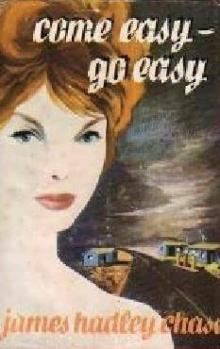 Come Easy, Go Easy
Come Easy, Go Easy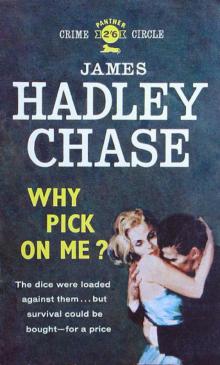 Why Pick On ME?
Why Pick On ME?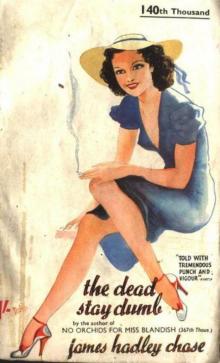 The Dead Stay Dumb
The Dead Stay Dumb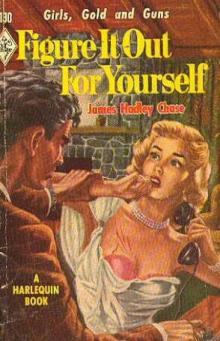 Figure it Out For Yourself
Figure it Out For Yourself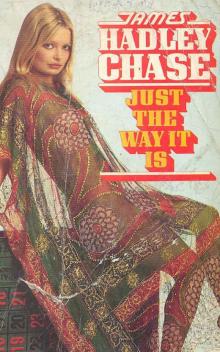 1944 - Just the Way It Is
1944 - Just the Way It Is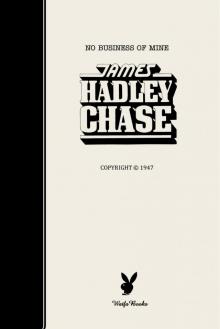 No Business Of Mine
No Business Of Mine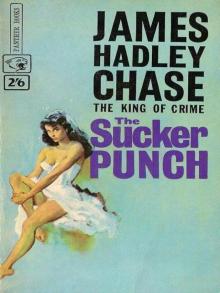 1953 - The Sucker Punch
1953 - The Sucker Punch Cade
Cade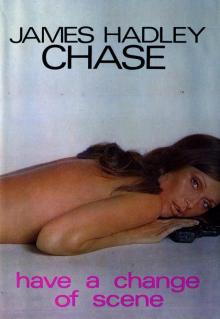 1973 - Have a Change of Scene
1973 - Have a Change of Scene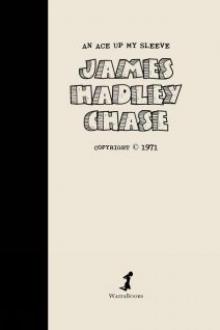 An Ace up my Sleeve
An Ace up my Sleeve 1968-An Ear to the Ground
1968-An Ear to the Ground 1950 - Figure it Out for Yourself
1950 - Figure it Out for Yourself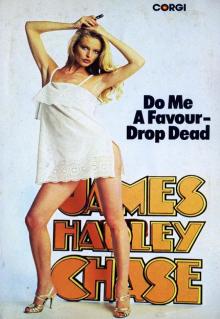 1976 - Do Me a Favour Drop Dead
1976 - Do Me a Favour Drop Dead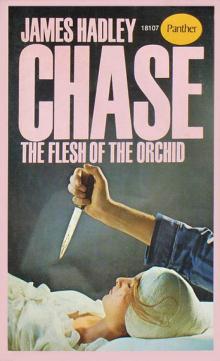 The Flesh of The Orchid
The Flesh of The Orchid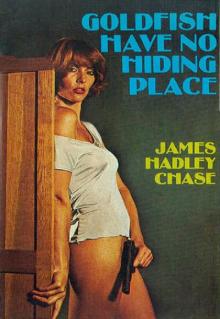 1974 - Goldfish Have No Hiding Place
1974 - Goldfish Have No Hiding Place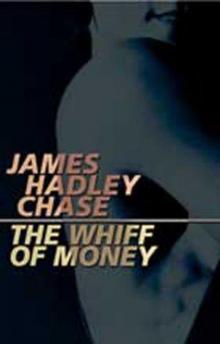 Whiff of Money
Whiff of Money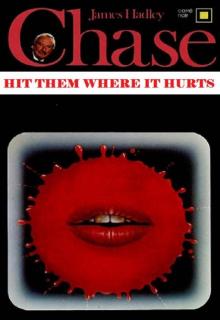 1984 - Hit Them Where it Hurts
1984 - Hit Them Where it Hurts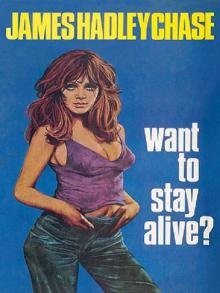 1971 - Want to Stay Alive
1971 - Want to Stay Alive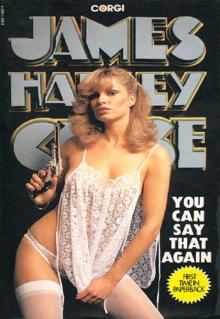 1980 - You Can Say That Again
1980 - You Can Say That Again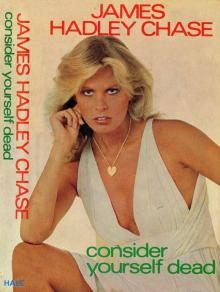 1978 - Consider Yourself Dead
1978 - Consider Yourself Dead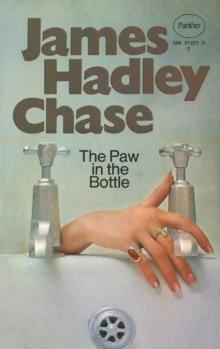 The Paw in The Bottle
The Paw in The Bottle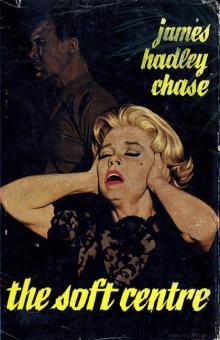 Soft Centre
Soft Centre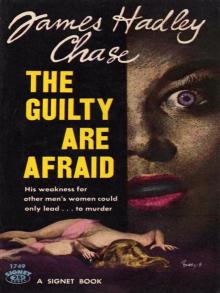 The Guilty Are Afraid
The Guilty Are Afraid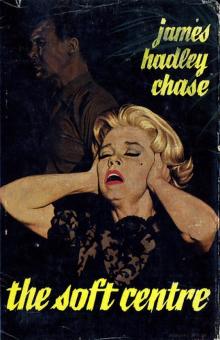 The Soft Centre
The Soft Centre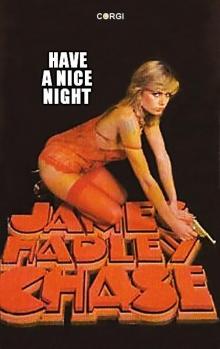 Have a Nice Night
Have a Nice Night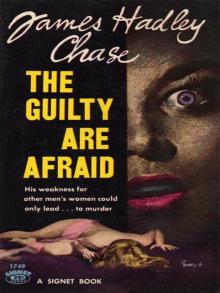 1957 - The Guilty Are Afraid
1957 - The Guilty Are Afraid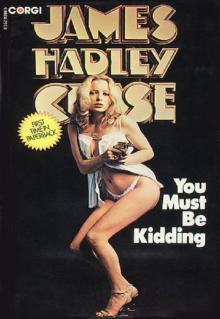 1979 - You Must Be Kidding
1979 - You Must Be Kidding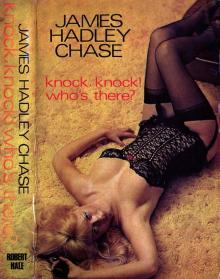 Knock, Knock! Who's There?
Knock, Knock! Who's There?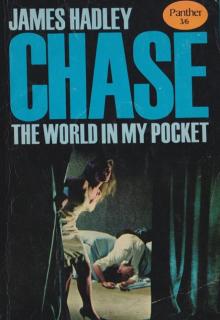 1958 - The World in My Pocket
1958 - The World in My Pocket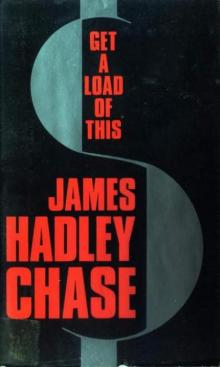 Get a Load of This
Get a Load of This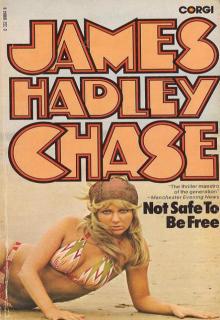 1958 - Not Safe to be Free
1958 - Not Safe to be Free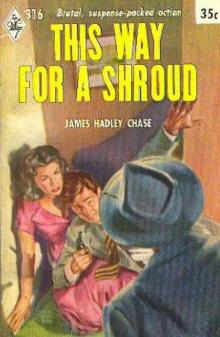 This Way for a Shroud
This Way for a Shroud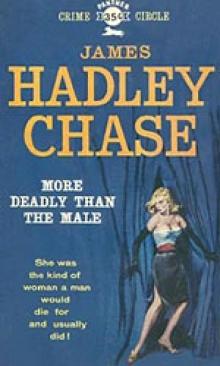 More Deadly Than the Male
More Deadly Than the Male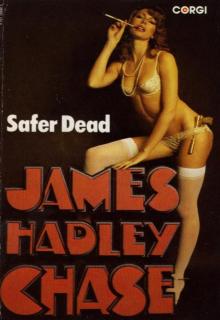 Safer Dead
Safer Dead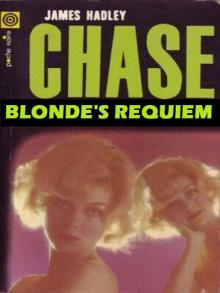 1945 - Blonde's Requiem
1945 - Blonde's Requiem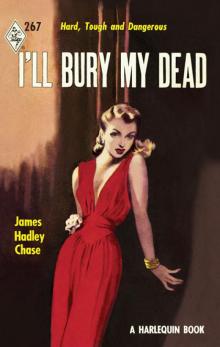 I'll Bury My Dead
I'll Bury My Dead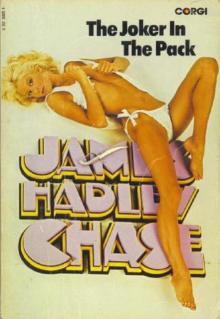 1975 - The Joker in the Pack
1975 - The Joker in the Pack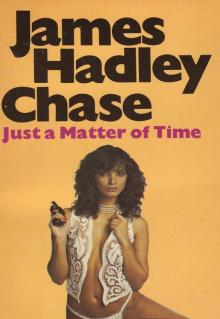 1972 - Just a Matter of Time
1972 - Just a Matter of Time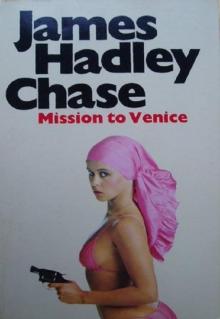 1954 - Mission to Venice
1954 - Mission to Venice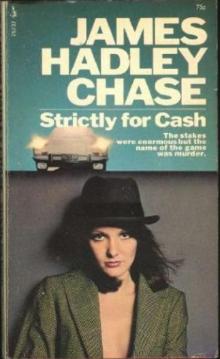 Strictly for Cash
Strictly for Cash A COFFIN FROM HONG KONG
A COFFIN FROM HONG KONG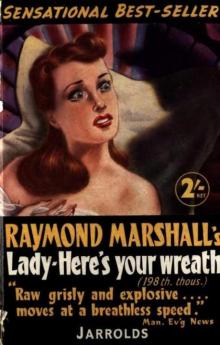 Lady—Here's Your Wreath
Lady—Here's Your Wreath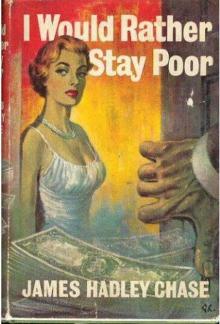 I Would Rather Stay Poor
I Would Rather Stay Poor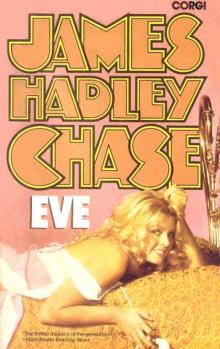 Eve
Eve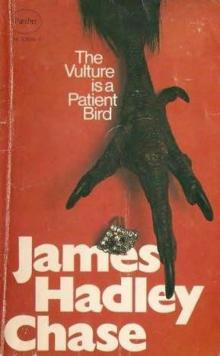 Vulture Is a Patient Bird
Vulture Is a Patient Bird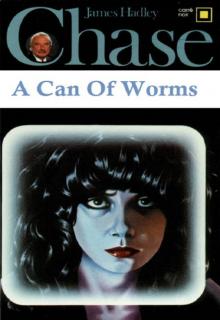 1979 - A Can of Worms
1979 - A Can of Worms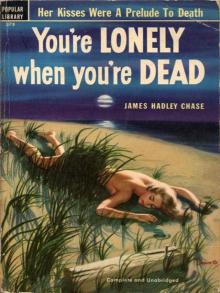 1949 - You're Lonely When You Dead
1949 - You're Lonely When You Dead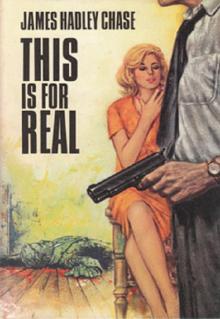 1965 - This is for Real
1965 - This is for Real (1941) Miss Callaghan Comes To Grief
(1941) Miss Callaghan Comes To Grief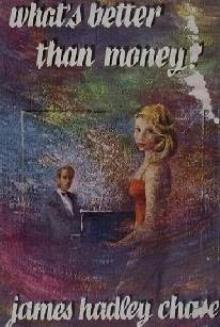 What`s Better Than Money
What`s Better Than Money This is For Real
This is For Real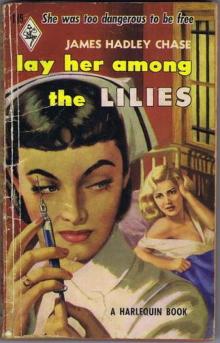 Lay Her Among the Lilies vm-2
Lay Her Among the Lilies vm-2 Knock Knock Whos There
Knock Knock Whos There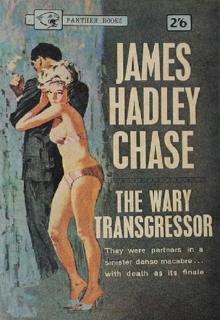 1952 - The Wary Transgressor
1952 - The Wary Transgressor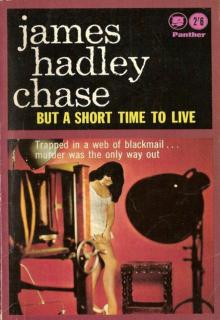 1951 - But a Short Time to Live
1951 - But a Short Time to Live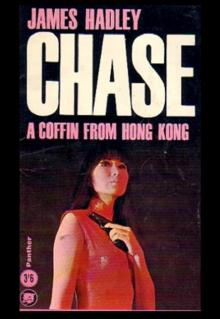 1962 - A Coffin From Hong Kong
1962 - A Coffin From Hong Kong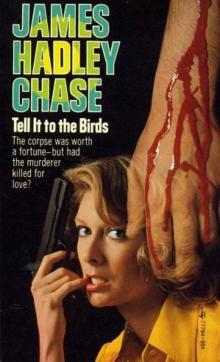 Tell It to the Birds
Tell It to the Birds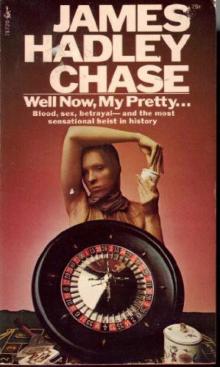 Well Now, My Pretty…
Well Now, My Pretty…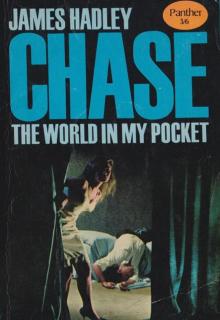 The World in My Pocket
The World in My Pocket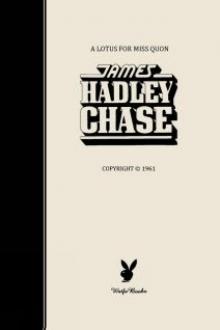 A Lotus for Miss Quon
A Lotus for Miss Quon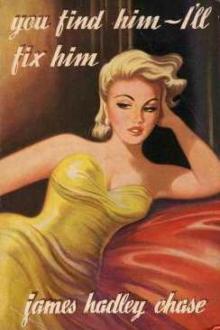 You Find Him, I'll Fix Him
You Find Him, I'll Fix Him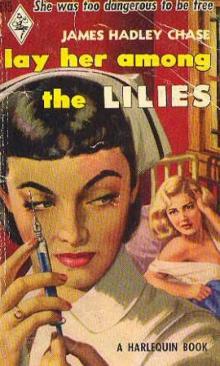 Lay Her Among The Lilies
Lay Her Among The Lilies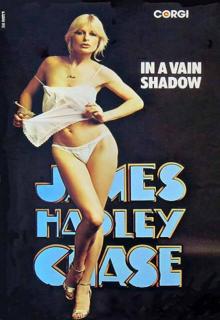 1951 - In a Vain Shadow
1951 - In a Vain Shadow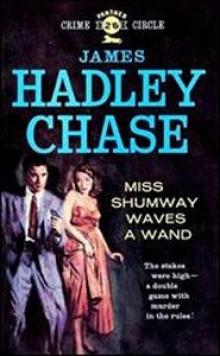 Miss Shumway Waves a Wand
Miss Shumway Waves a Wand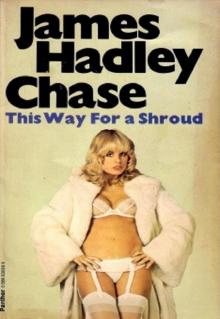 1953 - This Way for a Shroud
1953 - This Way for a Shroud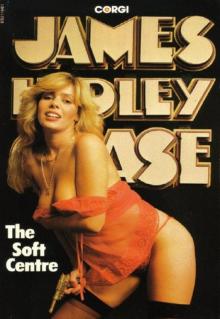 1964 - The Soft Centre
1964 - The Soft Centre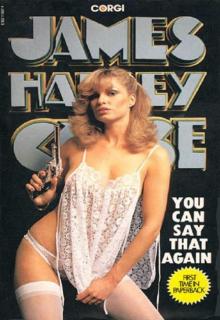 You Can Say That Again
You Can Say That Again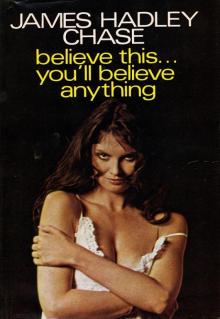 1975 - Believe This You'll Believe Anything
1975 - Believe This You'll Believe Anything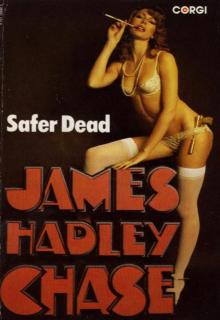 1954 - Safer Dead
1954 - Safer Dead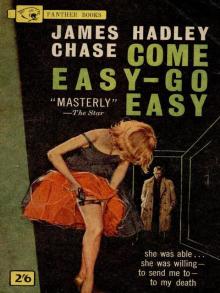 1960 - Come Easy, Go Easy
1960 - Come Easy, Go Easy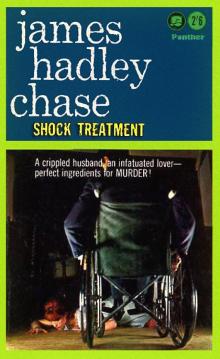 Shock Treatment
Shock Treatment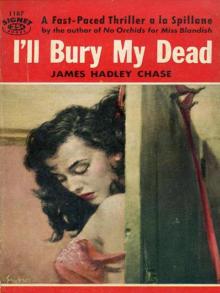 1953 - I'll Bury My Dead
1953 - I'll Bury My Dead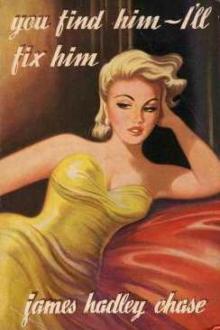 You Find Him – I'll Fix Him
You Find Him – I'll Fix Him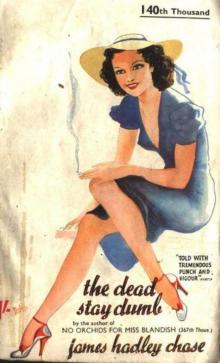 Dead Stay Dumb
Dead Stay Dumb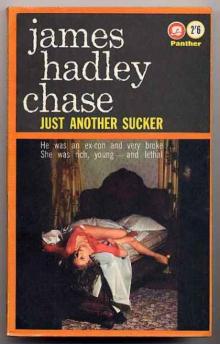 Just Another Sucker
Just Another Sucker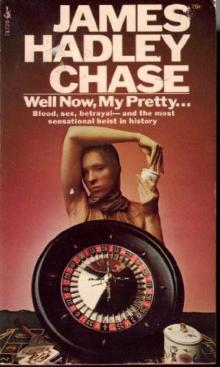 Well Now My Pretty
Well Now My Pretty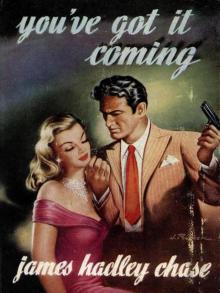 You've Got It Coming
You've Got It Coming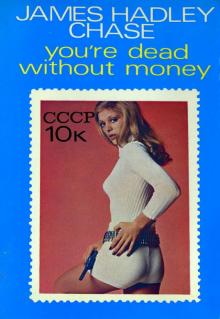 1972 - You're Dead Without Money
1972 - You're Dead Without Money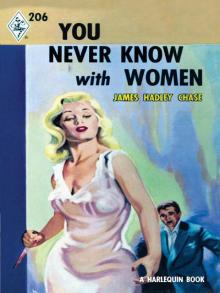 1955 - You Never Know With Women
1955 - You Never Know With Women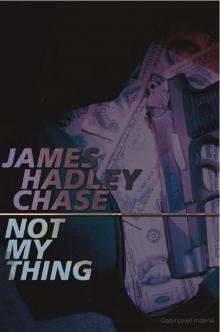 Not My Thing
Not My Thing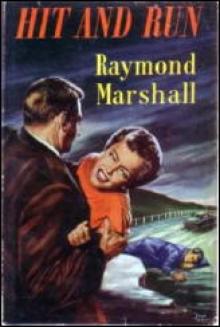 Hit and Run
Hit and Run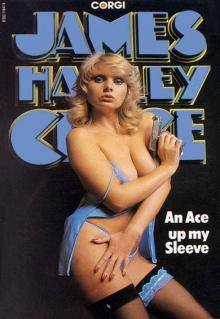 1971 - An Ace Up My Sleeve
1971 - An Ace Up My Sleeve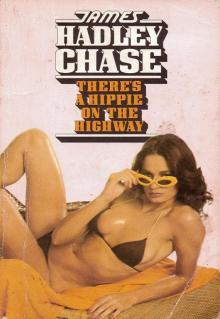 1970 - There's a Hippie on the Highway
1970 - There's a Hippie on the Highway 1968 - An Ear to the Ground
1968 - An Ear to the Ground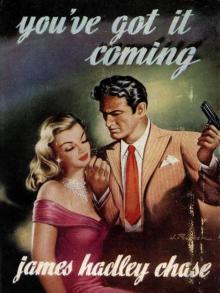 1955 - You've Got It Coming
1955 - You've Got It Coming 1963 - One Bright Summer Morning
1963 - One Bright Summer Morning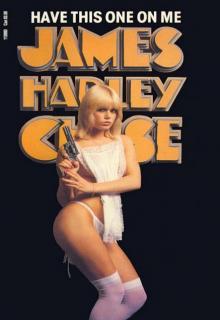 1967 - Have This One on Me
1967 - Have This One on Me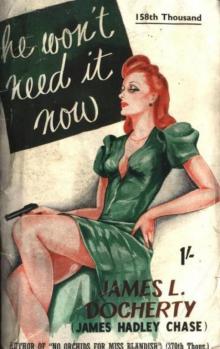 He Won't Need It Now
He Won't Need It Now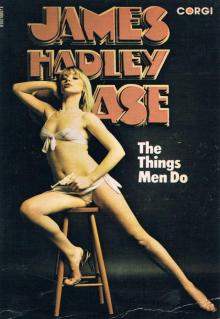 1953 - The Things Men Do
1953 - The Things Men Do Believed Violent
Believed Violent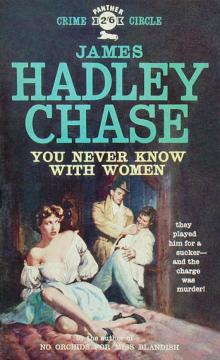 You Never Know With Women
You Never Know With Women Miss Callaghan Comes to Grief
Miss Callaghan Comes to Grief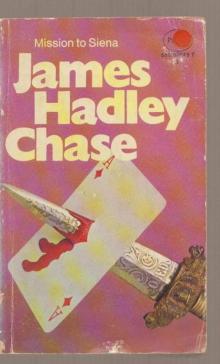 Mission to Siena
Mission to Siena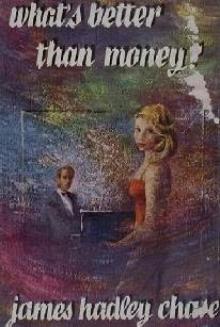 What's Better Than Money
What's Better Than Money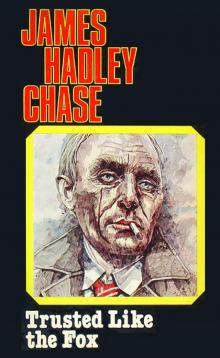 Trusted Like The Fox
Trusted Like The Fox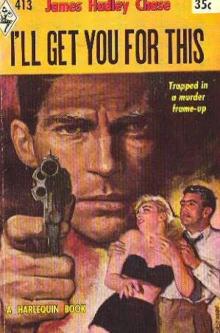 I'll Get You for This
I'll Get You for This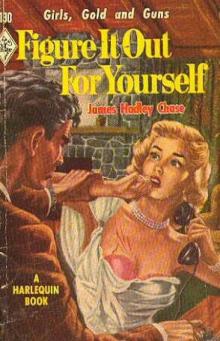 Figure It Out for Yourself vm-3
Figure It Out for Yourself vm-3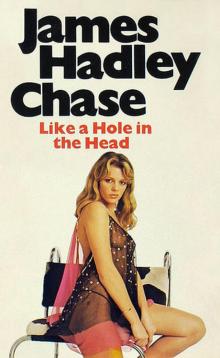 Like a Hole in the Head
Like a Hole in the Head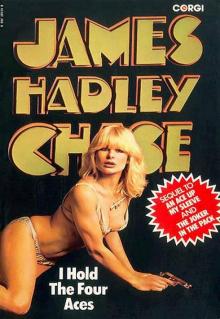 1977 - I Hold the Four Aces
1977 - I Hold the Four Aces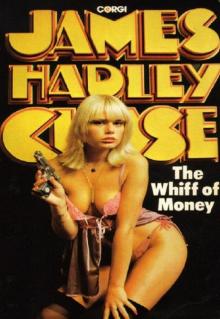 1969 - The Whiff of Money
1969 - The Whiff of Money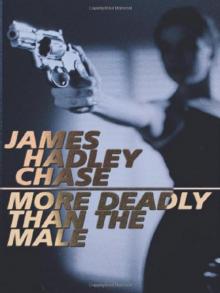 1946 - More Deadly than the Male
1946 - More Deadly than the Male 1956 - There's Always a Price Tag
1956 - There's Always a Price Tag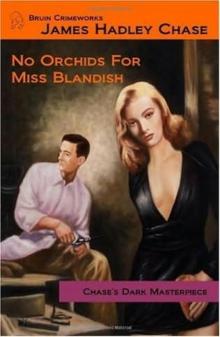 No Orchids for Miss Blandish
No Orchids for Miss Blandish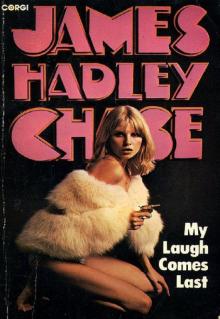 1977 - My Laugh Comes Last
1977 - My Laugh Comes Last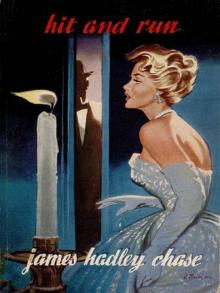 1958 - Hit and Run
1958 - Hit and Run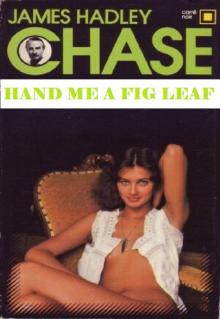 1981 - Hand Me a Fig Leaf
1981 - Hand Me a Fig Leaf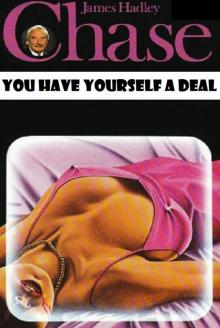 1966 - You Have Yourself a Deal
1966 - You Have Yourself a Deal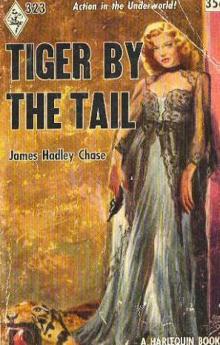 Tiger by the Tail
Tiger by the Tail